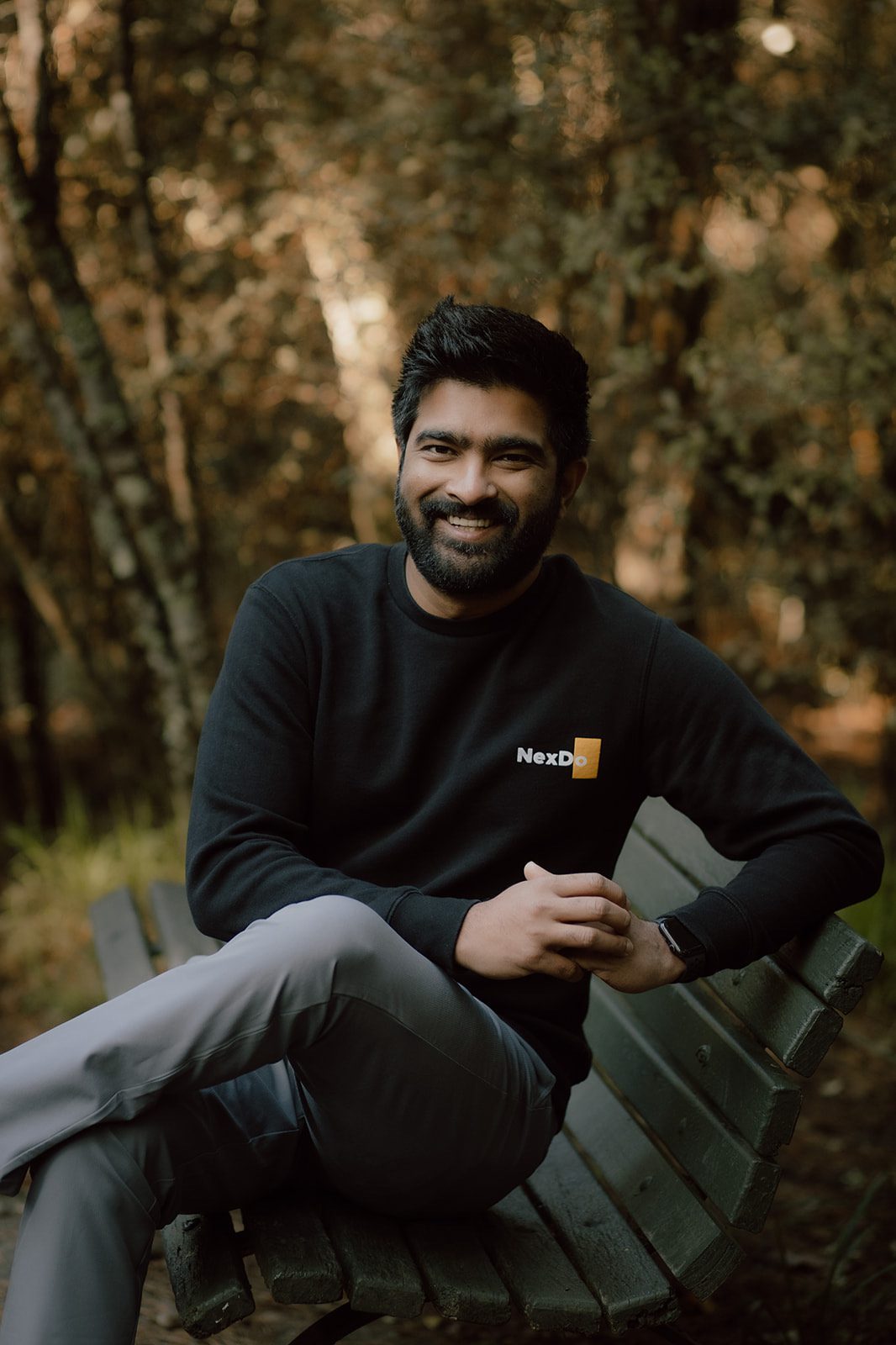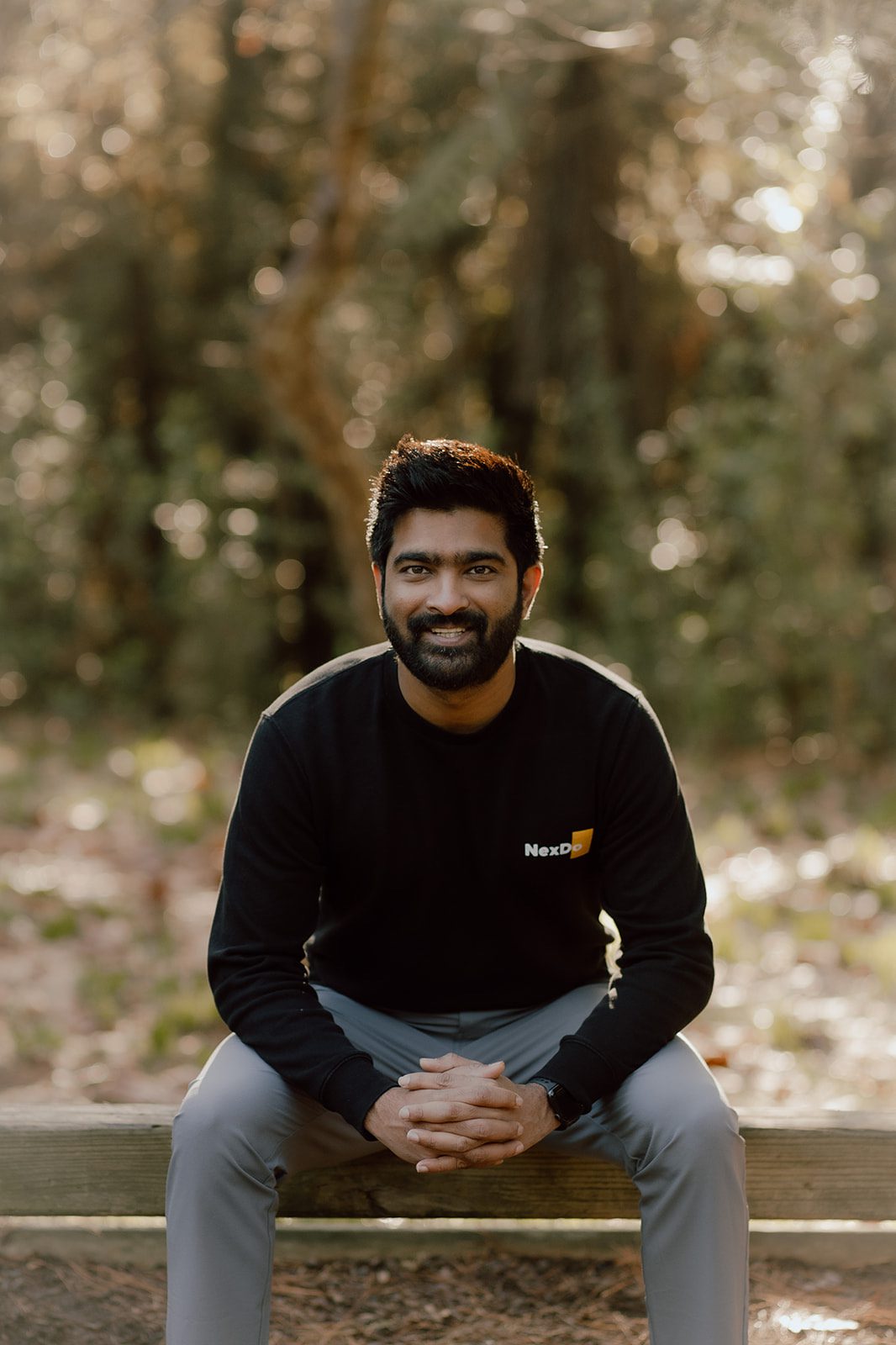(July 7, 2022)Had he listened to his heart, Sakshin Niranjan would still be in the food delivery space. But it was his mind that told him it was “crowded” and nudged him to start something of his own. This led to the launch of NexDo in New Zealand during the pandemic. Dubbed as the “Uber for home services”, it connects home services providers with customers via an app. That’s not all, in less than two years, it already boasts of 10,000 customers and recently raised $2 million in funding.
“We empower local businesses through our startup, and at the same time are solving an everyday problem faced by many New Zealanders,” Forbes 30 Under 30 Sakshin tells Global Indian.
Entrepreneurship in blood
The Chennai-born and raised, who comes from a business background, dreamed of becoming a pilot. But like many childhood dreams, this didn’t come to pass as he realised this wasn’t the right path for him. That’s when he enrolled in the Bachelor of Business Administration at SRM University. This led to a job at Amazon as an associate which helped him gain “experience in technology and how the market works.”

“Those two years at Amazon triggered an interest in business. In fact, my best friend at university and I decided to start our first company soon. But it didn’t work out as he left for higher education, and I moved to Zomato in 2015.” The high-growth environment and the workings of a startup turned out “pretty well” for Sakshin, who learnt a lot in the process. The stint helped him bag a position in Ola in 2016, but to climb up the ladder, he was told in various ways that MBA is a must. He chose Auckland University of Technology and flew almost 11000 km to start afresh in a new country.
“I did it out of peer pressure,” laughs the 30-year-old who was surprised by the difference in the work culture. While he was studying full-time, he worked with Ola part time. “While India has a very hierarchical culture, where the down below is often suppressed, New Zealand has a flat culture. Everyone can speak to the CEO and present their ideas. Initially, it was a little challenging to adapt to this but it changed me as a person,” adds Sakshin, one of the key members who helped launch Ola in New Zealand in 2018. Having worked in India for years, Sakshin was ready to bring the ride-sharing company in competition to Uber, but with his own set of challenges. “It was a different ball game in terms of market. I had to understand how the consumers work, understand the change in marketing and accordingly customise the product,” says the entrepreneur who learnt a lot through trial and error. “Understanding what’s local was the key, and helped me understand what I can bring to the table.”
How pandemic became a boon
The pandemic nudged Sakshin Niranjan to return to his dream of being an entrepreneur. “Seeing uncertainty in the market and people losing their jobs, I started questioning what I truly wanted to do. Though I had a job and was even getting better offers at such a time, this gave me enough confidence that things were certain for me even in such uncertain times. With no family to support and locked in the country for two years, I knew this was the best time to give it a shot,” says Sakshin who launched NexDo in 2020.

“I always had a passion for solving a problem, and the idea of NexDo stemmed from a personal requirement. I realised that it took days to get an appointment, so I knew it was a space that I could explore for my startup. As many like me were feeling the heat, I took the plunge,” says Sakshin but venturing into entrepreneurship came with its learnings. Like most startups, he started in a garage with just two-three people. “Each day I was waking up early to clean the place, search for funds, and learn how to run Facebook ads. I took a course on YouTube to learn design and make marketing campaigns. I knew I always wanted to do something of my own, but it did get overwhelming at times,” says the entrepreneur whose team has now expanded to 15 members and also employs 150 contractors.
Making an impact
With NexDo, Sakshin is “empowering service professionals and turning them into entrepreneurs.” “Most employees are exploited in terms of pay or work hours. What we are doing with NexDo is creating micro finances for free, where we give them training and guidance,” says the man who made it to the Forbes 30 Under 30 list. He calls it “shocking” but is happy with the validation that he’s on the right path. “There was a time I was cold-emailing so many people but now, right people are reaching out to us.”
View this post on Instagram
Bringing a new idea to a new country has its advantages, and this “edge” helped Sakshin find footing in New Zealand’s startup ecosystem with NexDo. “Had I started the same thing in India, it would have been easier to find funding with the kind of contacts and experience I possessed. Would I have succeeded? Maybe. But in New Zealand, it was a bit harder initially. However, the media helped in spreading the word. Since we were doing something unique for this market, the novelty struck the right chord with the customers and investors,” says the entrepreneur.”I started by borrowing money from family and friends. Within six months, local investors started showing interest and in these last two years, we have seen 200-300 percent growth.”
Sakshin Niranjan, who likes to unwind by spending time with friends and watching movies, has plans of expanding NexDo to Australia. The entrepreneur, who has now made a name for himself in New Zealand, says “there is no rule book to follow. You can be anywhere and make things happen if you have a vision.”




